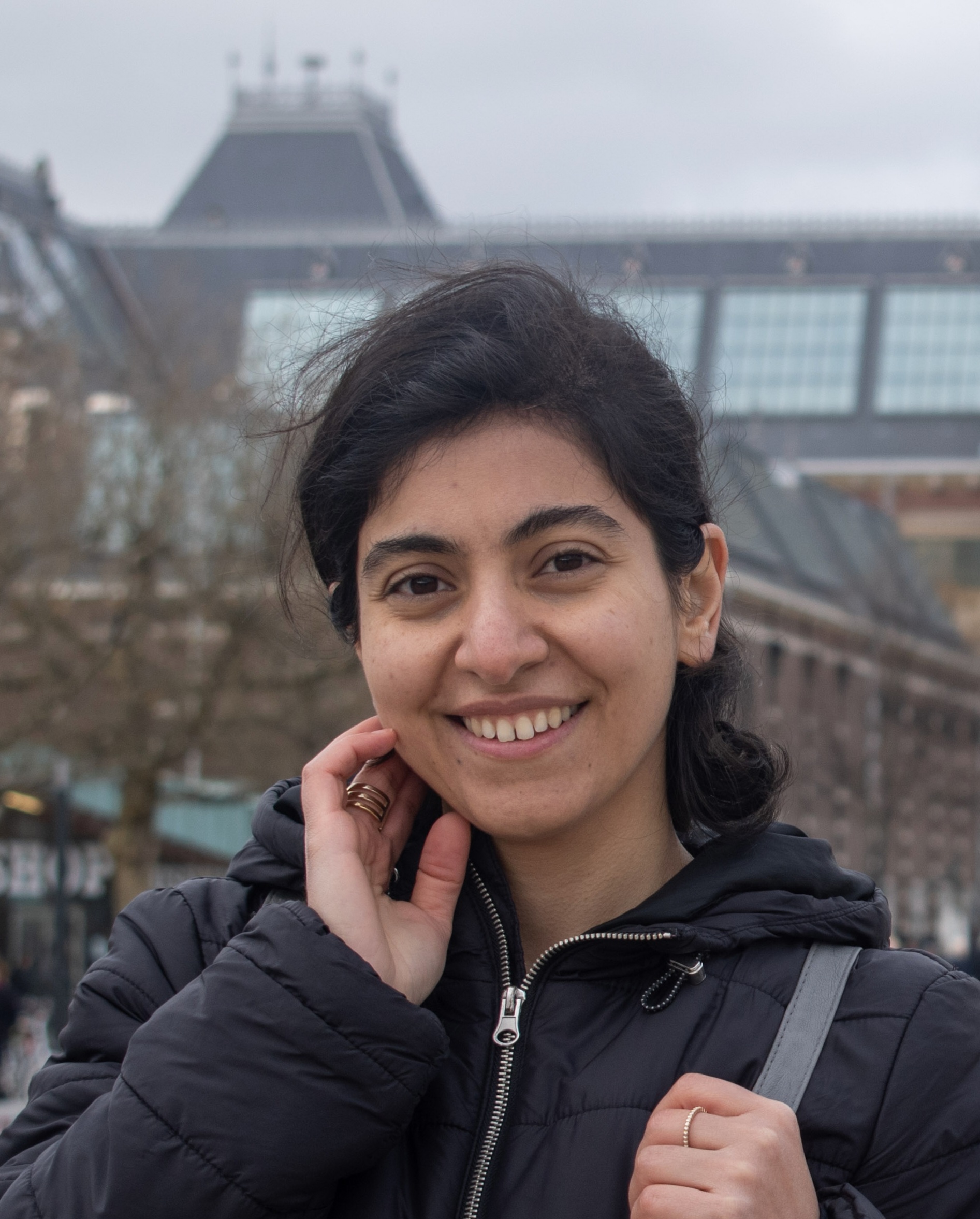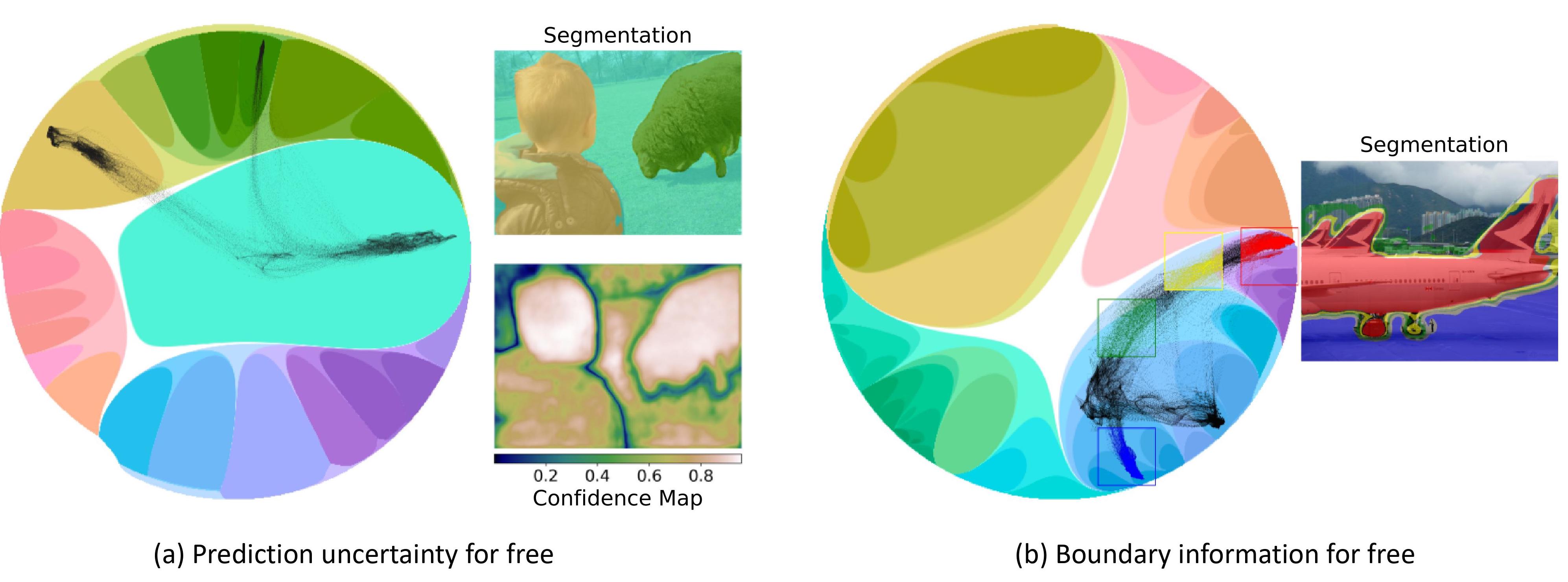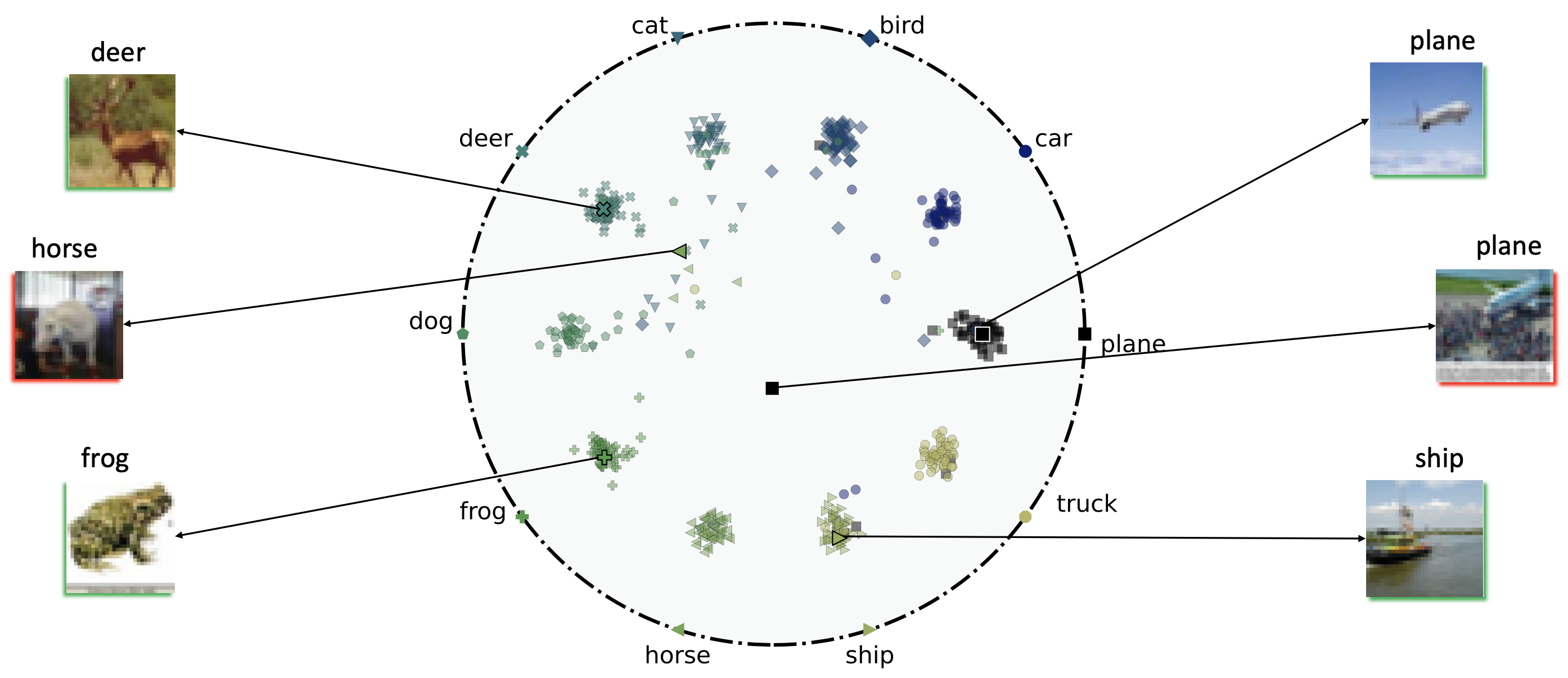|
I am a Ph.D. student at the University of Amsterdam. I'm working on "Hyperbolic visual representation learning" under the supervision of Pascal Mettes at VisLab. I recently finished my internship at Apple MLR team, working with Xavier Suau. I completed my Master's degree in the Statistical Machine Learning Lab at the Department of Computer Engineering and Information Technology, Amirkabir University of Technology, Tehran, Iran, in 2019. I received my B.Sc. degree from the Department of Computer Engineering and Information Technology, Amirkabir University of Technology, Tehran, Iran, in 2016. |

|
|
|
|
| [June 2023] | Joined Apple as MLR intern, working on diffusion models. |
| [May 2022] | "Hyperbolic Deep Learning in Computer Vision: A Survey" is available online. |
| [Oct 2022] | Organized a tutorial on Hyperbolic Representation Learning at ECCV 2022 |
| [Sep 2022] | Visited Mediterranean Machine Learning Summer School, got the best poster award. [Paper] |
| [July 2022] | Visited International Computer Vision Summer School in Sicily. [Paper] |
| [May 2022] | Hyperbolic Image Segmentation is accepted as oral presentation to NCCV2022. [Paper] |
| [March 2022] | Hyperbolic Image Segmentation is accepted to CVPR2022. [Paper] |
| [Sep 2021] | Hyperbolic Busemann Learning with Ideal Prototypes is accepted to NeurIPS2021. [Paper] |
| [Oct 2020] | Joined VisLab as Ph.D. student. |
|
I'm interested in computer vision and understanding images and videos. I'm interested in exploring images and video understanding in non-Euclidean spaces, such as hyperbolic space. |
|
Pascal Mettes, Mina Ghadimi Atigh, Martin Keller-Ressel, Jeffrey Gu, Serena Yeung arXiv, 2023 arXiv In this survey, We outline how hyperbolic learning is performed in all themes and discuss the main research problems that benefit from current advances in hyperbolic learning for computer vision. |
|
|
Mina Ghadimi Atigh, Julian Schoep, Erman Acar, Nanne van Noord, Pascal Mettes CVPR, 2022 project page / arXiv Hyperbolic Image Segmentation opens up new possibilities and practical benefits for segmentation, such as uncertainty estimation and boundary information for free, zero-label generalization, and increased performance in low-dimensional output embeddings. |
|
|
Mina Ghadimi Atigh, Martin Keller-Ressel, Pascal Mettes NeurIPS, 2021 project page / Paper / arXiv Where existing works on prototype-based learning in hyperbolic space requires prior knowledge to operate, Hyperbolic Busemann Learning places prototypes at the ideal boundary of the Poincar`e ball. This enables a prototype positioning without the need for prior knowledge. |
|

|
Sina Mokhtarzadeh Azar, Mina Ghadimi Atigh, Ahmad Nickabadi, Alexandre Alahi CVPR, 2019 project page / Paper / arXiv We propose a Convolutional Relational Machine for group activity recognition by extracting the relationships between persons. We show that the activity map is a useful representation that effectively encodes the spatial relations. |

|
Sina Mokhtarzadeh Azar, Mina Ghadimi Atigh, Ahmad Nickabadi arXiv, 2018 arXiv In this paper, we presented multi-stream convolutional networks as a framework for group activity recognition. In this framework, new modalities both in spatial and temporal domains can be easily plugged in to improve the model’s power. |

|
Sina Mokhtarzadeh Azar, Sajjad Azami Mina Ghadimi Atigh, Mohammad Javadi, Ahmad Nickabadi Arxiv, 2018 arXiv In this paper, we proposed a novel method for combining cues of different body regions for the task of person recognition in photo album. Our approach uses two distinct recurrent neural networks to extract information present in different parts of a human photo in order to improve recognition performance. |
|
|
|
| [September 2023] | Applied Machine Learning |
| [September 2022] | Applied Machine Learning |
| [September 2021] | Applied Machine Learning |
| [September 2020] | Applied Machine Learning |
|
Thanks Jon for the template! |


